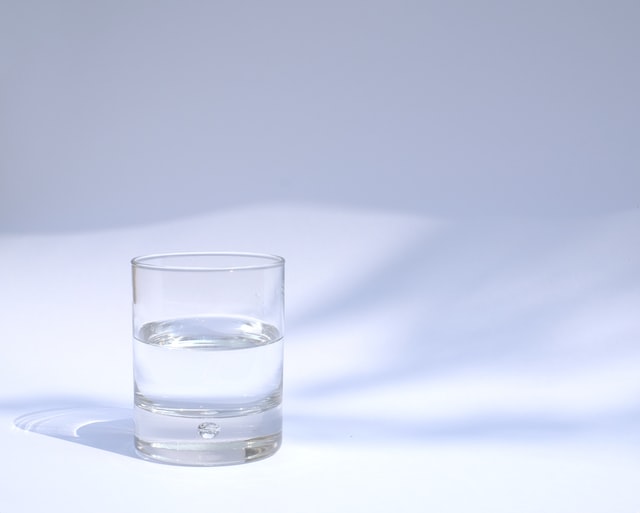In a world of iced mocha cappuccinos, water may not be the most interesting beverage, but you can’t live without it. So, how much water should you drink every day? So, let’s go into some figures.
The National Academies of Science, Engineering, and Medicine suggests the following fluid intake for daily consumption:
- For males, 125 ounces (3.7 litres).
- For women, 91 ounces (2.7 litres).
But here’s the thing: Think of those figures as a starting point. “How much water you need depends on your size, metabolism, geography, food, physical activity, and health,” explains preventive medicine expert Roxanne B. Sukol, MD.
And the liquid you drink does not all come from a glass. Water found in meals accounts for around 20% of your daily fluid consumption.
That’s a lot of knowledge to take in all at once, isn’t it? So, here’s a step-by-step account.
How to Calculate Your Fluid Requirements
Dr Sukol recommends taking the following four things into account when determining how much water you require:
- Drink additional water if you work out often or move around a lot throughout the day.
- Location: If you find yourself in a hotter environment or at a greater altitude, you should drink more water.
- Metabolism: If you believe you have a fast metabolism and your body seems to need more fuel to keep its engines revving, you may want to drink a few more sips throughout the day.
- Size: The more weight you have, the more water your body needs.
But, like the stock market, water demand fluctuates on a daily basis, depending on:
- Consumption of alcohol: Alcohol is a diuretic that might dehydrate you. Drink a glass of water before deciding on a second cocktail to rehydrate yourself and restore fluids lost due to alcohol-mediated losses.
- “We definitely worry when folks are unwell and not receiving enough liquids — especially if they are also losing fluids due to vomiting or diarrhoea,” Dr Sukol says. If you have a fever, you should increase your regular fluid intake by a few cups. Clear broth and gelatin are also considered fluids.
- Physical activity: Did you go for a brisk run? The more physically engaged you are, the more water you will need.
- Weather: A hot one will undoubtedly need more water than a snowstorm. Make use of your common sense. It won’t harm to drink a bit more than the daily recommended if you live in a dry environment or a dry house.
Signs that you aren’t drinking enough water
Don’t assume you’re drinking enough water just because you’re not thirsty. Dr. Sukol recommends instead taking a look at your urine. You’re on the correct track if it’s a light yellow hue. If your pee is darker or has a strong odour, you should drink additional water.
Other mild to severe dehydration symptoms include:
- Constipation.
- Dizziness.
- The mouth is parched.
- Fatigue.
- Cramping of the muscles
Severe dehydration is a medical emergency that needs quick intervention. Severe dehydration may cause the following symptoms in addition to the ones listed above:
- Pain in the abdomen.
- Confusion.
- Lethargy.
The Advantages of Drinking Water
Water is often seen as a fourth macronutrient, alongside protein, lipids, and carbs. It is necessary for your body to operate properly. (Fun fact: your body is composed of 60% water.)
“That’s why you need to make sure you’re drinking enough water,” Dr Sukol adds. “It’s also why those who can’t drink tend to get into more difficulty.”
Water can assist you with:
- Water ensures that your blood has the proper consistency to transport oxygen- and nutrient-rich blood to the organs that need it, such as your brain, heart, kidneys, and muscles.
- Dr Sukol says that “dehydration is a readily reversible cause of constipation.”
- Consider your joints to be the gears in your automobile. They must be well-lubricated in order to operate and last.
- Kidneys: Drinking enough water may help avoid kidney damage and diseases.
- Drinking water may be just as beneficial as pricey anti-aging creams and lotions for clean, wrinkle-free skin. It may also help to prevent some skin problems.
- Water keeps your mouth clean and reduces your risk of tooth decay.
There is also evidence that drinking water may improve exercise performance, aid in weight reduction, and lessen allergy and asthma symptoms.
Is it possible to drink too much water?
The quick answer is yes… but it’s difficult. Hyponatremia, or low sodium, may be caused by a variety of factors, one of which is drinking too much water in a short period of time.
“This illness might be really dangerous, but it is incredibly unusual,” Dr Sukol explains. “It’s rare for somebody to drink so much water that they end up hurting themselves.”
